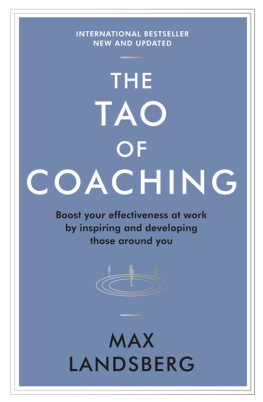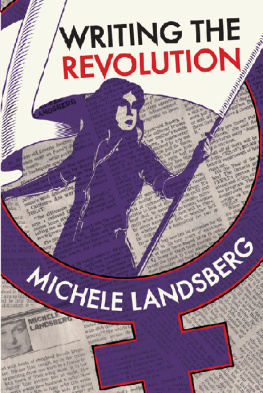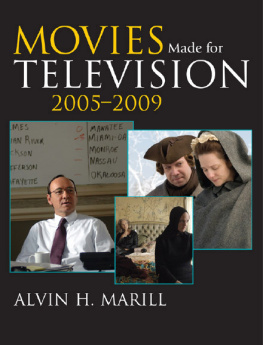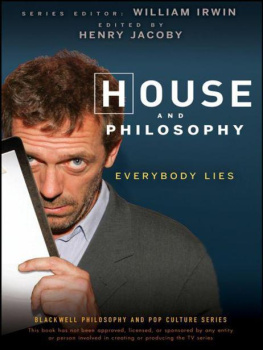ENGAGING THE PAST
ENGAGING THE PAST
Mass Culture and the Production of Historical Knowledge
ALISON LANDSBERG
COLUMBIA UNIVERSITY PRESS
NEW YORK

Columbia University Press
Publishers Since 1893
New York Chichester, West Sussex
cup.columbia.edu
Copyright 2015 Columbia University Press
All rights reserved
Library of Congress Cataloging-in-Publication Data
Landsberg, Alison.
Engaging the past : mass culture and the production of historical knowledge / Alison Landsberg.
Pages cm
Includes bibliographical references and index.
ISBN 978-0-231-16574-7 (cloth : alk. paper) ISBN 978-0-231-16575-4 (pbk. : alk. paper) ISBN 978-0-231-53946-3 (e-book)
1. Motion pictures and history. 2. Historical filmsHistory and criticism. 3. Television and history. 4. Historical television programsHistory and criticism. 5. Documentary-style television programsHistory and criticism. I. Title.
PN1995.2.L35 2015
791.43'6582dc23
2014040180
A Columbia University Press E-book.
CUP would be pleased to hear about your reading experience with this e-book at .
Jacket Design: Jordan Wannemacher
Jacket Image: Corbis
References to websites (URLs) were accurate at the time of writing. Neither the author nor Columbia University Press is responsible for URLs that may have expired or changed since the manuscript was prepared.
For my parents, Jill and Lewis Landsberg, with love
Contents
I WOULD LIKE to express my gratitude to the various institutions and individuals whose intellectual, moral, and financial support enabled me to complete this book.
The ideas for this book originated from a series of papers I wrote for several groundbreaking international conferences and symposia on memory, media, and history. I thank the following colleagues for providing me the opportunity to present my work and for the insightful feedback I received: Ann Gray and Erin Bell, organizers of the Televising History conference at the University of Lincoln in 2009; Leonardo Gandini, organizer of the Memory and Media conference in Trento, Italy, in 2009; Michael Rothberg and Stef Craps, who put together the seminar Creolizing Memory for the American Comparative Literature Associations annual meeting in 2010; Anne Rigney, organizer of Memory on the Move at the University of Utrecht in 2010; Eleanor Ty and Russ Kilbourn, organizers of Memory, Mediation, Remediation: An International Conference on Memory in Literature and Film at Wilfrid Laurier University in 2011; and Stephan Jaeger, organizer of Languages and Cultures of Conflicts and Atrocities in Winnipeg, Canada, in 2012. I am grateful also to Malgorzata Rymsza-Pawlowska, who as a graduate student at Brown University invited me to a give a talk there in 2011 and to participate in an exciting Mellon Workshop, Affect Unbounded, that she and other graduate students organized.
I am eternally grateful to Robert Rosenstone and Alun Munlsow, founding editors of the journal Rethinking History. They were early champions of my work, and as this book attests, their own extensive scholarship has been incredibly important to my thinking.
Portions of first appeared as Waking the Deadwood of History: Listening, Language, and the Aural Visceral, Rethinking History 14, no. 4 (2010): 53149. I am grateful for the permission to include them in this book.
I owe a significant debt to my colleagues in both the Department of History and Art History and the Cultural Studies Ph.D. program at George Mason University; I have benefited enormously from being around a group of talented and supportive colleagues. Although neither Roy Rosenzweig nor Larry Levine were alive during the writing of this book, their commitments to democratizing history and to examining how history is disseminated, produced, and acquired outside the academy were a true inspiration. Deborah Kaplan, colleague and dear friend, has been a crucial interlocutor for me. I am profoundly grateful for her pointed questions and truly insightful suggestions and for her meticulous reading of the full manuscript.
I could not ask for a better editorial team than the one I worked with at Columbia University Press. My editor, Philip Leventhal, was a supporter of this somewhat unconventional project from the beginning, and Anne McCoy, Whitney Johnson, Annie Barva, and others were consistently patient and helpful. Not all authors are lucky enough to receive thorough, insightful, and, above all, useful readers reports; I am grateful to the anonymous readers of this manuscript, whose invaluable suggestions certainly made it better. Of course, only I am responsible for the books shortcomings.
Although my children, Eli and Leah, were until recently only dimly aware that I was writing another book, they nevertheless contributed in important ways to the project. From the time that Eli was little, he has always wanted to understand the big picture. His questions are profound and energizing, and they provide precisely the kinds of provocations to new thoughts that I take up in this book. Leah, perhaps the most empathetic person I know, always tries to see every situation from the other side. Her lack of cynicism and her ardent desire to see the good in everything are an inspiration to me and are reflected in the way I approach the mass-cultural texts that I analyze.
My colleague, friend, and husband, Matthew B. Karush, was fully aware that I was writing another book! He has been my sounding board and my most tireless reader for nearly two decades. His incisive questions and insights have been instrumental in helping me to develop and refine my ideas. It is to him that I owe my deepest gratitude.
A CENTURY AGO, in 1915, D. W. Griffith famously prophesied that history books would be replaced by movies and that in a not-so-distant future time the children in the public schools will be taught practically everything by moving pictures. Certainly they will never be obliged to read history again. Instead of wading laboriously through a host of books, and ending bewildered without a clear idea of what exactly did happen and confused at every point by conflicting opinions about what did happen, you will merely seat yourself at a properly adjusted window, in a scientifically prepared room, press the button, and actually see what happened. His vision imagines a central role for motion pictures, which he understood in scientific terms. The technology of film, he believed, like scientific instruments, would be free of human bias and would therefore offer a perfectly transparent, objective view of the past.
In obvious ways, Griffiths prophesy was wrong. Within a decade, motion pictures were appropriated by the burgeoning entertainment industry, not the public schools. And to this day professional academic history is alive and well. Professional historians in the academy continue to conduct research, engage in intellectual debate, and advance interpretations of the past, which often take the form of peer-reviewed journal articles and scholarly monographs. Students, from elementary school through college, continue to acquire historical knowledge by reading books. Furthermore, Griffiths claim that there will be no That film could somehow reveal the past in a transparent, unbiased manneras opposed to creating a representation of itis itself pure fantasy.
Film did not hold the key to objectivity, as Griffith thought it might, nor did it become first and foremost a pedagogical tool for teaching those in the present about the past. And yet it would be a mistake to ignore the role cinema as an institution and audiovisual media more broadly have played in shaping the way people in the present visualize, come to understand, and ultimately feel invested in history. When one thinks about the past, what does one see? What images does one call up? For those in the academy, historical knowledge is derived from reading historical monographs and journal articles, from assessing the debates between historians over interpretations of issues in the pastsay, the role of women in the new republic, the agency of slaves in the Deep South, or the racialization of immigrants at the turn of the twentieth century. And yet no matter how much academic history one has read, no matter how sophisticated ones understanding of the complexities of the past, ones
Next page





